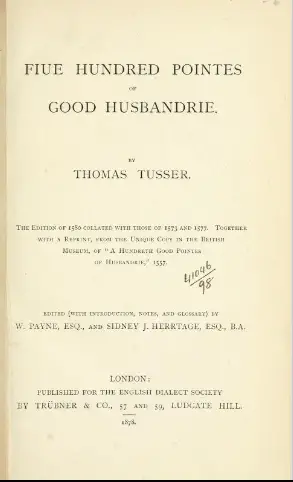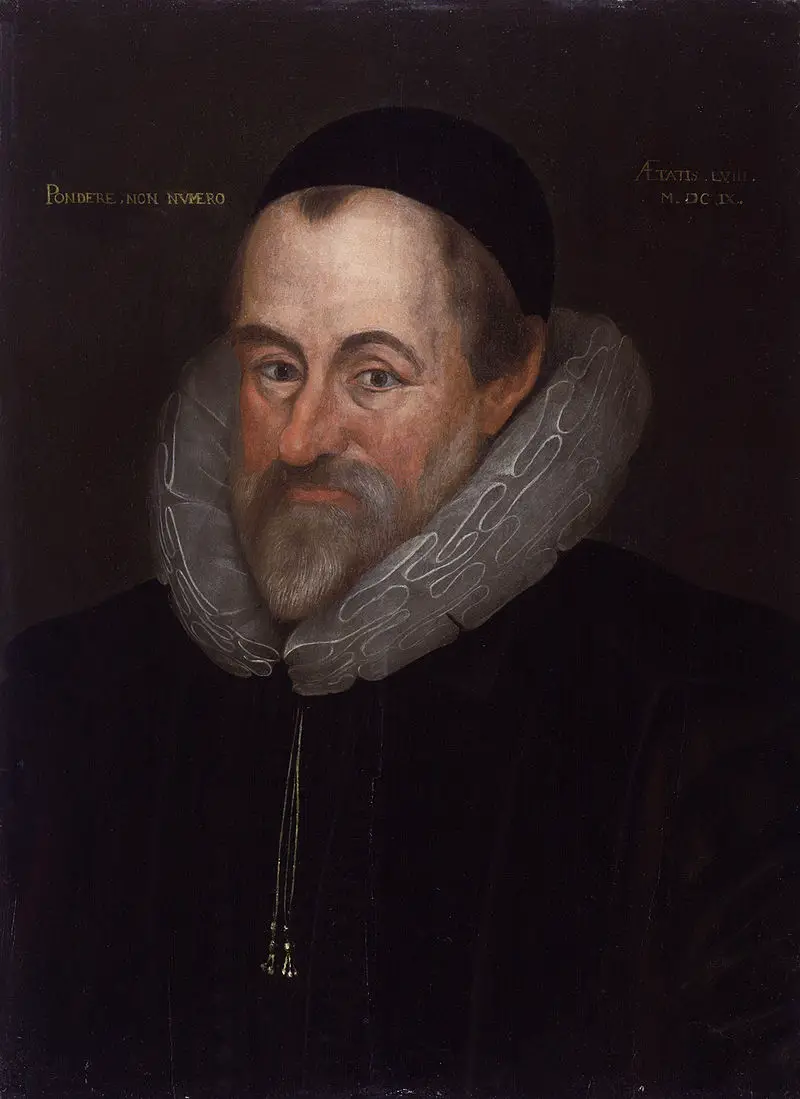We don't usually associate religious persecution with the reign of Edward VI, but people did suffer in his reign.
On this day in history, 2nd May 1550, Joan Bocher (Boucher, Butcher, Knel, Knell), an Anabaptist, was burnt at the stake at Smithfield. Bocher believed that Christ's flesh was "not incarnate of the Virgin Mary" and so she was convicted of heresy and condemned to death.
In his Acts and Monuments of the Christian Church, in the volume which deals with Edward VI's reign, John Foxe writes of the king:
"He always spared and favoured the life of man; as once appeared in a certain dissertation of his had with Master Cheek, in favouring the life of heretics; insomuch that when Joan Butcher should be burned, all the council could not move him to put to his hand, but were
fain to get Dr. Cranmer to persuade with him, and yet neither could he, with much labour, induce the king so to do; saying, "What, my Lord? will ye have me to send her quick to the devil in her error?" So that Dr. Cranmer himself confessed, that he had never so much to do in all his life, as to cause the king to put to his hand, saying that he would lay all the charge thereof upon Cranmer before God."
Which makes it sound like Cranmer had to take responsibility for Joan's burning. The editor of Biographical Memoir of King Edward the Sixth writes that John Foxe gives the king "credit for having wished to save Joan Butcher" but notes that this "is done at the expense of archbishop Cranmer" and that "the friends of that prelate have not allowed this story to pass undisputed".
John Strype in his Ecclesiastical Memorials has an account with the title "Joan of Kent promotes Arianism" which is about Joan Bocher. Here it is:
"In the month of April 1550. it was ordered, that whosoever should have ecclesiastical benefices granted them by the King, should preach before him in or out of Lent: and that every Sunday, there should be a sermon made at Court.
Arianism now shewed itself so openly, and was in such danger of spreading farther, that it was thought necessary to suppress it by using more rugged methods than seemed agreeable to the merciful principles of the professors of the Gospel. One Joan Bocher or Knel, commonly called Joan of Kent, being condemned for this heresy the latter end of the last year, a warrant, dated April 27, was issued by order of Council to the Lord Chancellor, to make out a writ to the Sheriff of London for her execution, [to be burned,] for certain detestable opinions of heresy. These are the words of the Council-Book. The Archbishop of Canterbury was not then present at the Council-board, the Bishop of Ely was. After her condemnation she was kept a great while, a hope to reclaim her. April 30. the Bishops of London and Ely were with her to persuade her, but she withstood them. And even at her execution, which was May 2. she And reviled him that then preached, (who was Dr. Scory,) as the King writes in his journal.
If any be minded to hear more of this woman, he may be informed by Parsons, that she was at first a great disperser of Tindal's New Testaments, translated by him into English, and printed at Colen, and was a great reader of Scripture herself. Which books she also dispersed in the Court, and so became known to certain women of quality, and was more particularly acquainted with Mrs. Anne Ascue. She used for the more secrecy to tie the books in strings under her apparel, and so pass with them into the Court. The said author writes, that she was openly reported to have been dishonest of her body with base fellows. Which I charitably suppose might be but a calumny, too common with Parsons.
When she was condemned to die for her denial of Christ's taking flesh of the blessed Virgin, she said to the Judges, "It is a goodly matter to consider your ignorance. It was not long ago since you burned Anne Ascue for a piece of bread, and yet came yourselves soon after to believe and profess the same doctrine for which you burned her. And now forsooth you will needs burn me for a piece of flesh, and in the end you will come to believe this also, when you have read the Scriptures, and understand them."
When she came to die in Smithfield, and Dr. Scory endeavoured to convert her, she scoffed at him, and said, he lied like a rogue; and bade him, Go, read the Scriptures."
In Strype's Memorials of the Most Reverend Father in God, Thomas Cranmer, sometime Lord Archbishop of Canterbury, Strype records Cranmer's findings regarding Joan Bocher:
"Her opinion is in the instrument drawn up against her in the Archbishop's register: which ran thus; "That you believe that the Word was made flesh in the Virgin's belly; but that Christ took flesh of the Virgin you believe not, because the flesh of the Virgin, being the
outward man, was sinfully gotten, and born in sin. But the Word, by the consent of the inward man of the Virgin, was made flesh." This she stood perversely in. So the Archbishop himself excommunicated her judicially; the sentence being read by him, April 1549, in St. Mary's chapel, within the cathedral church of Paul's, Sir Thomas Smith, William Cook, Dean of the Arches, Hugh Latimer, Richard Lyell, LL. D. the King's commissioners, assisting. She was committed afterwards to the secular arm; and certified so to be by an instrument made by the commissioners to the King. After she was condemned, she was a seven-night in the Lord Chancellor Rich his house; and every
day the Archbishop and Bishop Ridley came and reasoned with her, that, if possible, they might save her from the fire: but nothing would do. I will here produce Latimer's censure of her, who well knew her case, being one of the commissioners that sat upon her. "She would say," saith he in his sermon on St. John Evangelist's day, "that our Saviour was not very man, nor had received flesh of his mother Mary: and yet she could shew no reason why she should believe so. Her opinion was this; The Son of God, said she, penetrated through her as through a glass, taking no substance of her. This foolish woman denied the common creed, Natus ex Maria Virgine, and
said that our Saviour had a fantastical body."
Miles Huggarde (1556) writes of Joan: "Ioane of kent a great pratler of diuinite, & brocher of our late doctrine, helde an opinion that Christe toke no fleshe of the bles∣sed virgin Mary, and was wor∣thely burned in Smythfielde."
You can also read an account of Joan Bocher in the 19th century book Memorials of Baptist Martyrs by J. Newton Brown at https://archive.org/details/preliminaryhistory00memorich, page 281.
Poet William Wordsworth wrote a sonnet "Edward siging the warrant for the execution of Joan of Kent":
"THE tears of man in various measure gush
From various sources; gently overflow
From blissful transport some--from clefts of woe
Some with ungovernable impulse rush;
And some, coeval with the earliest blush
Of infant passion, scarcely dare to show
Their pearly lustre--coming but to go;
And some break forth when others' sorrows crush
The sympathising heart. Nor these, nor yet
The noblest drops to admiration known, 10
To gratitude, to injuries forgiven--
Claim Heaven's regard like waters that have wet
The innocent eyes of youthful Monarchs driven
To pen the mandates, nature doth disown."
If you're wondering what "Arianism" is, here is a definition of it, in the religious sense, from the Encyclopaedia Britannica: "Arianism, in Christianity, the Christological (concerning the doctrine of Christ) position that Jesus, as the Son of God, was created by God. It was proposed early in the 4th century by the Alexandrian presbyter Arius and was popular throughout much of the Eastern and Western Roman empires, even after it was denounced as a heresy by the Council of Nicaea (325)."
As for "Anabaptist", Merriam-Webster defines this as: "a Protestant sectarian of a radical movement arising in the 16th century and advocating the baptism and church membership of adult believers only, nonresistance, and the separation of church and state."
Notes and Sources
- ed. John Gough Nichols (1857) Literary remains of King Edward the Sixth. Edited from his autograph manuscripts, with historical notes and a biographical memoir, ccvi.
- Strype, John (1822 edition) Ecclesiastical Memorials Relating Chiefly to Religion and the Reformation of It, and the Progress made Therein, under the Reign and Influence of King Edward the Sixth, p.334-336.
- The Editors of Encyclopædia Britannica - https://global.britannica.com/topic/Arianism
- Merriam-Webster - https://www.merriam-webster.com/dictionary/Anabaptist
- Hope, Andrew. “Bocher, Joan (d. 1550).” Andrew Hope In Oxford Dictionary of National Biography, online ed., edited by David Cannadine. Oxford: OUP, 2004.
- Evans, B (1864) The Early English Baptists Volume I - read on Google Books, p. 72 onwards.
- Becke, Edmon (1550) A brefe confutacion of this most detestable, and anabaptistical opinion, that Christ dyd not take hys flesh of the blessed Vyrgyn Mary, nor any corporal substaunce of her body: for the maintenaunce whereof Jhone Bucher, otherwise called Jhone of Kent was burned in Smythfyelde, the .ii. day of May - read on Google Books
- Strype, John (1694) Memorials of the Most Reverend Father in God, Thomas Cranmer, sometime Lord Archbishop of Canterbury, Volume I, p. 258.
- Huggarde, Miles (1556) The displaying of the Protestantes, [and] sondry their practises, with a description of diuers their abuses of late frequented Newly imprinted agayne, and augmented, with a table in the ende, of all suche matter as is specially contained within this volume. Made by Myles Huggarde seruant to the Quenes maiestie. - See http://quod.lib.umich.edu/cgi/t/text/text-idx?c=eebo;idno=A68194.0001.001
- ed. Reed, Henry (1837) The complete poetical works of William Wordsworth: together with a description of the country of the lakes in the north of England, now first published with his works, XXVIII in Poems of the Imagination, p. 301. Read online at https://archive.org/details/completepoetical03word.



The followers of Arias moved away from the West and many found refuge in eastern parts of the Roman Empire and beyond. They were welcomed in Persia and in China. Many of the Christians Marco Polo makes reference to in his Travels were descendents of Arian Christians. Interestingly the Vandals who raided Rome and much of the Eastern Empire and later North Africa were not pagans but Arians. I am amazed the cult or belief still existed but it must have transformed and been absorbed into Anabaptism. The belief stated above also found expression later in the West as part of the Cathar heresy. They rejected all matter as originally of evil nature, so Jesus could not have been made flesh as we know it and Mary was a holy vessel by which he passed through and returned to the divine. The belief may be odd, but it was clearly a minority one by this time, hardly a threat. However, Anabaptists were wide spread as a movement and all across Europe they suffered horrendously at the hands of Protestant and Catholic alike. Why isn’t known but they were hung, drowned, burnt, beheaded, everywhere they went. Rest in peace all these brave souls.
I hadn’t realised that people had been burned under the reign of Edward VI, so I found this article to be particularly interesting. I knew that both his sisters had the reputation for doing so, as did his father. The only victim that I am really familiar with is the Fair Maid of Kent. To read what she is alleged to have said really makes me wonder if she was guilty of having said it, or if she was the scapegoat behind which unhappy members of the clergy hid.